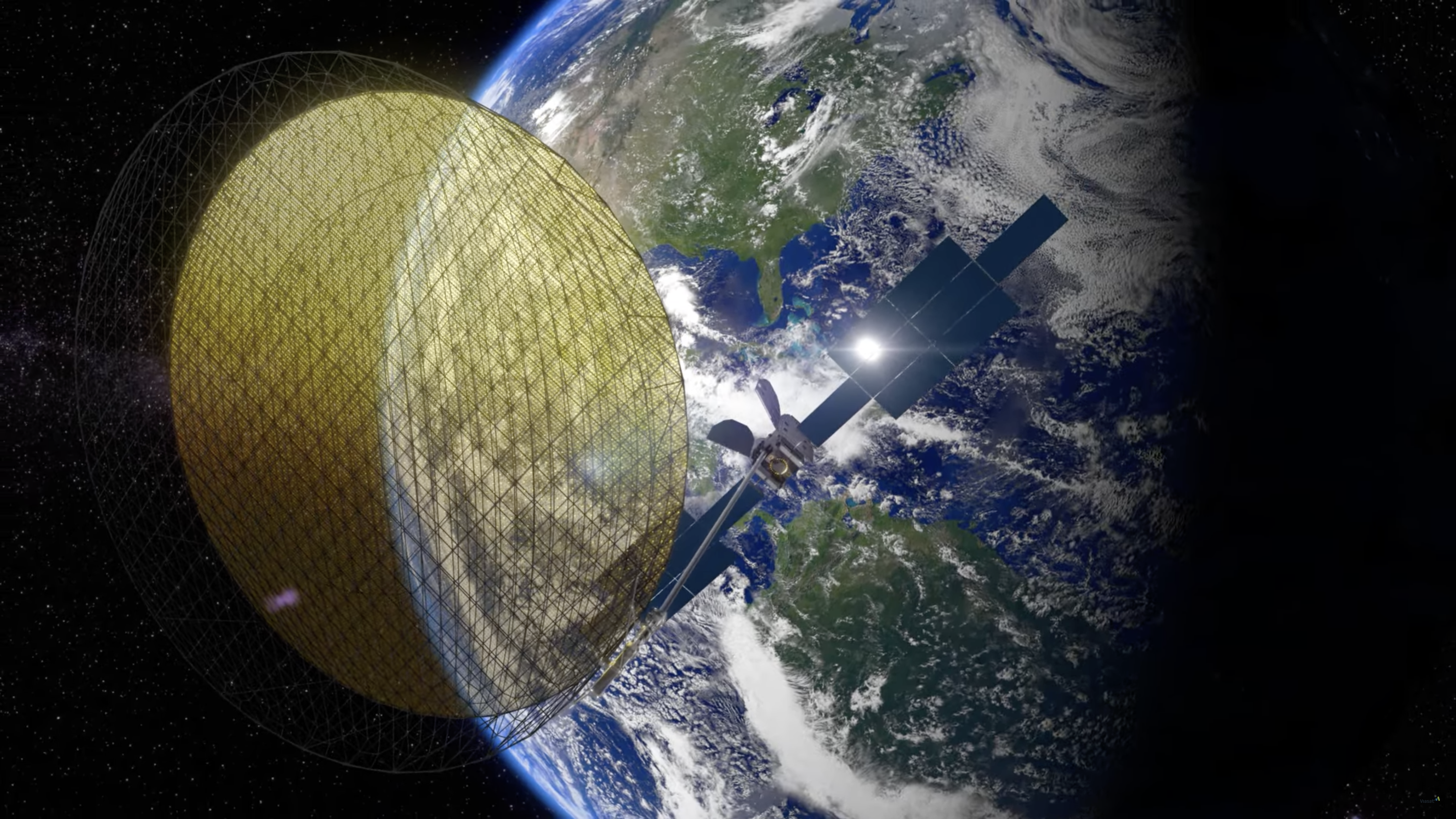WASHINGTON — Despite satellite malfunctions that are expected to lead to major insurance claims, the space insurance field is taking a cautious approach to servicing technologies that might be able to repair such spacecraft.
In a talk at the Global Satellite Servicing Forum Oct. 12, Mark Quinn, chief executive of WTW Global Inspace, a space insurance broker, acknowledged that several high-profile satellite malfunctions and other incidents will result a major loss for the field in 2023.
“It’s the worst market we’ve been in in the last 20 years,” he said. “In the last six months there’s been about $1 billion in claims against about $500 million in premiums.”
Those claims will likely include two malfunctions of recently launched satellites. ViaSat-3 Americas, also known as ViaSat-3 F1, encountered a problem deploying its large antenna that will reduce the available capacity on that broadband satellite by more than 90%. Viasat reported a separate problem with the power subsystem with the Inmarsat-6 F2 satellite in August that raised questions about its ability to operate. A total loss of ViaSat-3 F1 could result in a $420 million insurance claim, while Inmarsat-6 F2 could result in a $350 million claim.
Those and other claims, such as satellites with malfunctioning electric propulsion systems, are creating what Quinn called a “market correction” for space insurance. The heavy losses in 2023 come after seven years of “very mediocre results” with little profit for insurers.
“When this bad year comes in, it causes the underwriters to look at the portfolio of all the business they write,” he said. “When they look at space, they’re reassessing how they’re going to approach this class of business in terms of how much capital they’re going to commit, what types of risk they’re going to underwrite and what premium rates they’re going to charge.”
Quinn spoke at a conference organized by CONFERS, an industry group promoting development of standards and best practices for satellite servicing and related applications. Some in the field have argued that satellite servicing could, in the long term, help reduce insurance claims, with insurers themselves potential customers of those services.
He suggested the space insurance field would take a cautious approach to satellite servicing given the lack of technical maturity and experience in the industry. Insurers, he noted, are looking for in-flight demonstrations and other flight-proven technologies, which he acknowledged is not always possible.
“In order to unlock significant capacity on new projects of very high value — new applications with hardware that actually hasn’t flown in orbit — we need to figure out a way to get insurers comfortable that something that is flying is going to work reliably the first time so they are willing to commit their capacity at a reasonable price with the coverage that is required,” he said.
Getting insurers comfortable with satellite servicing, he said, will be a long-term process. “They key is a multi-year, multi-touch process where you engage the insurance community, bring them in as a true partner,” he said, so they understand both the technology and the business opportunity.
As for whether insurers would be customers of satellite servicing, Quinn said it’s possible at some point. “It needs to be available, it needs to be reliable and it also needs to be cost effective,” he said of satellite servicing. “It needs to cost less than the alternative.”
Insurers, he added, may be open to eventually offering discounts on insurance policies for satellites designed to be more easily serviced. “The short answer is yes, but not right now,” he said, because of concerns about the effectiveness and cost of satellite servicing. “I do see that as something that could happen down the road.”
